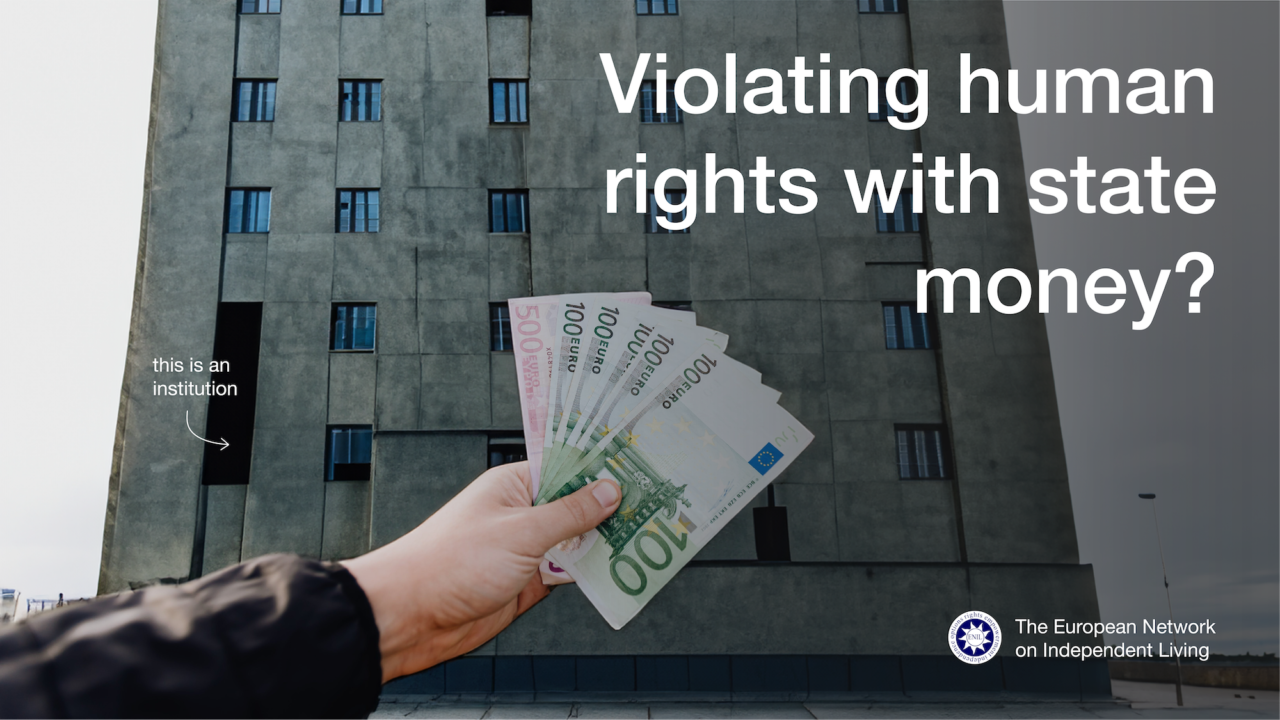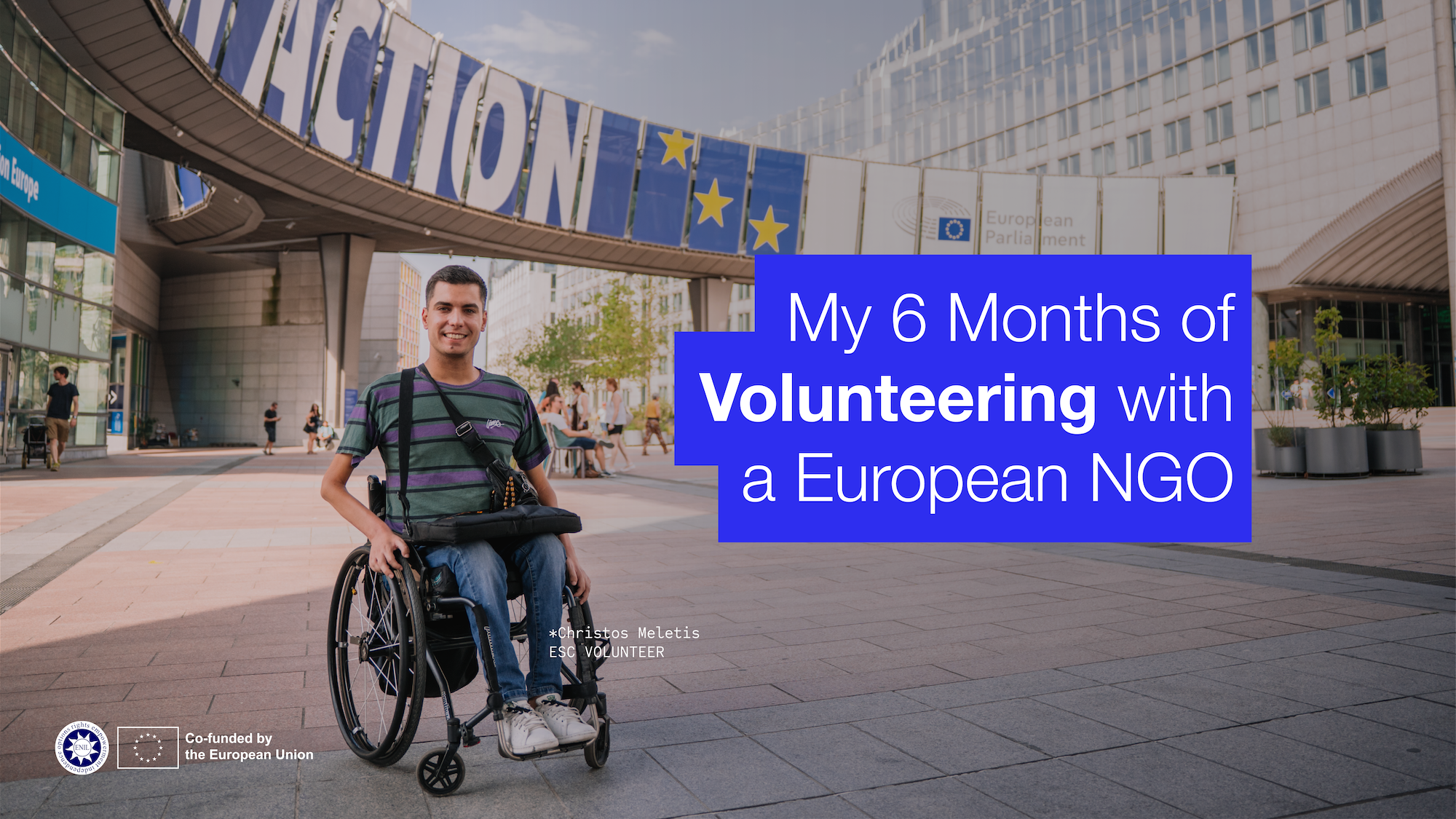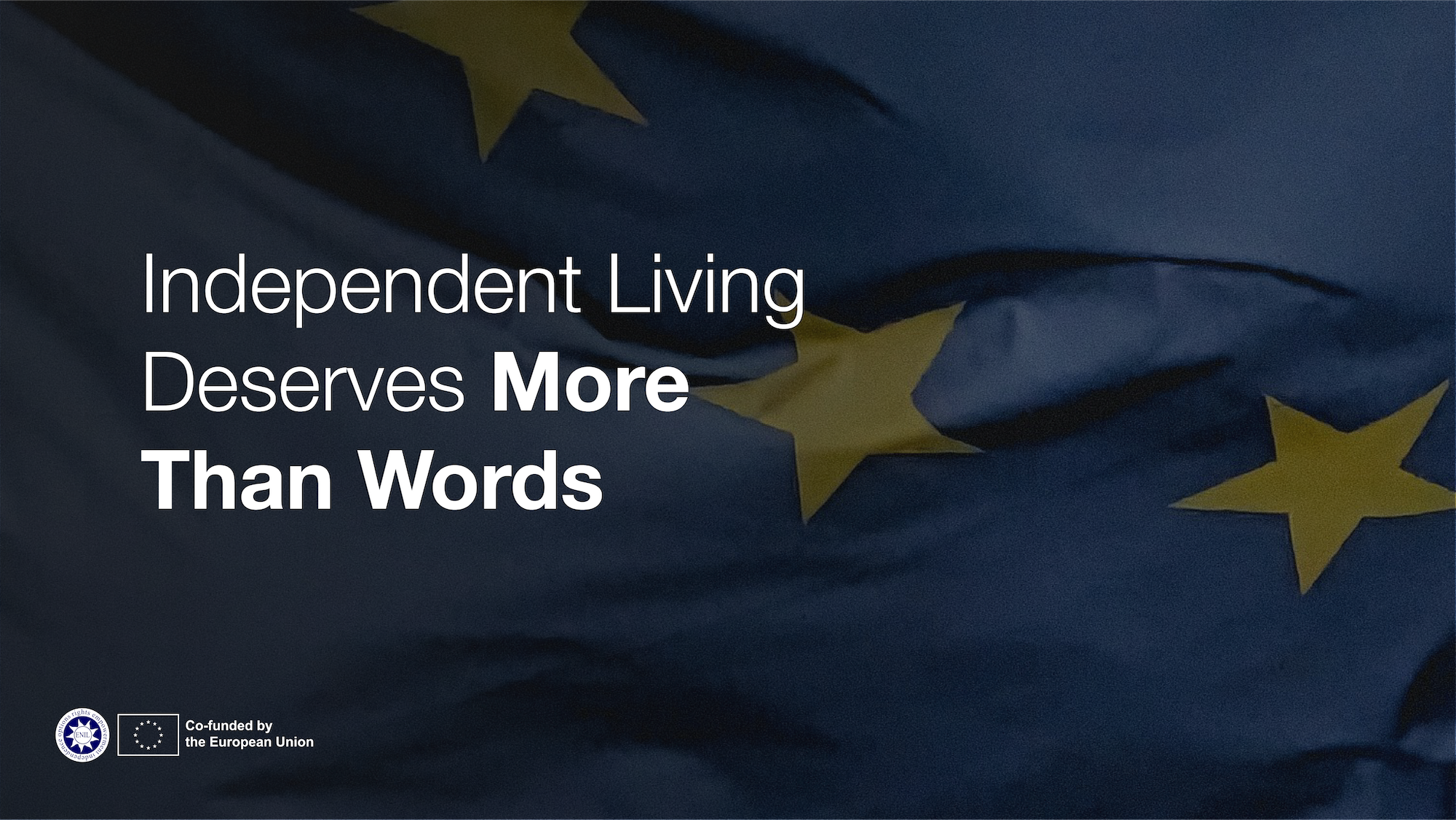Today ENIL launches a new briefing which advances concrete suggestions for a reform of EU State Aid legislation. Making the General Block Exemption Regulation UN CRPD compliant, would make it harder for authorities to subsidise sheltered workshops with millions of Euros.
By Florian Sanden, florian.sanden@enil.eu
Services for disabled people that segregate, rather than create inclusion are very common throughout the EU. We know that 1,4 million disabled persons live institutions. In Germany and France approximately 470 000 disabled people work in sheltered workshops. For now, there are no figures for the entire EU but given the high number in only two countries, the total count must be high.
Subsidies from national budgets finance segregation
Segregating services receive their funding from a variety of sources. ENIL research has confirmed time and again that substantial amounts come from the EU, the European Social Fund, the Fund for Regional Development and the Recovery and Resilience Facility.
There is another source which has so far been overlooked. National, regional and local authorities spend substantial resources coming from their own budgets to subsidise institutions and sheltered workshops. Those funds are urgently needed to finance services which are truly empowering.
ENIL research has been able to identify many concrete cases in which services that segregate disabled people have been subsidised. Altogether, authorities spent EUR 553,43 million on those projects. Given the research was far from exhaustive, the total figure must be significant. The cases uncovered were mostly from Sweden and Germany. Some were from Spain.
Sheltered workshops are failures
There is mounting evidence that sheltered workshops are ineffective in integrating disabled people into the first labour market. Employers tend to refuse to hire disabled people, even when they are well qualified. Instead of helping to find a proper job, social services often offer work in a sheltered workshop. The very thing happened to Florian from Germany. Despite all obstacles, the refuses to work in sheltered employment and keeps looking for a normal job. He is right in his approach. Once in sheltered employment, it can become very difficult to get out again.
In 2021, a study by researchers from the University of Amsterdam produced statistical evidence that higher investments into sheltered employment reduces the chances for disabled people to find proper jobs. General Comment No 8 of the Committee on the Rights of Persons with Disabilities, published in 2022, concluded that sheltered workshops are based on ableism and discrimination.
Provisions of the UN CRPD
Not only do sheltered workshops not work. Those settings are also incompatible with the United Nations Convention on the Rights of Persons with Disabilities (UN CRPD). Article 27 states that “State Parties recognise the right of persons with disabilities to work, on an equal basis with others”. General Comment No 8 clarified that sheltered employment is not a measure of progressive realisation of the right to work and that state parties should transition away from segregated work in favour of integrating persons with disabilities into the regular labour market.
To be in line with the Convention, state parties have to ensure all policy areas take the UN CRPD into account. The European Strategy on the Rights of Persons with Disabilities strives to mainstream disability throughout all policy areas.
EU State Aid Legislation
Because subsidies to undertaking by national authorities might affect the internal market, the EU has extensive competences to regulate those activities. The European Commission has, to a certain extent, accepted the idea that financial support to social services needs to be permitted, since those are services of general economic interest.
This reasoning is largely correct. However, the EU is under obligation to comply with the UN CRPD in all its areas of legal competence. State aid is clearly an area of strong legal competence and financial support to services that segregate is not in line with the Convention. In the case of sheltered workshops, it hinders the objective of labour market integration.
Proposal for reform
In 2026, the European Commission will have to review one of the key legislations on state aid, the General Block Exemption Regulation (GBER). Adding a small change to this regulation would contribute significantly to making EU state aid law UN CRPD compliant and restrict the practice by authorities of subsidising sheltered workshops.
In particular article 34, paragraph 2, section f states: “The eligible costs shall be the following: … where the beneficiary provides sheltered employment, the costs of constructing, installing or modernising the production units of the undertaking concerned, and any costs of administration and transport, provided that such costs result directly from the employment of workers with disabilities”.
ENIL proposes a simple solution to the problem which is to remove section f from the regulation.
Other sections of the regulation already permit authorities to financially support wage expenses and assistance at work. Removing sheltered workshops will free more resources to support those measures which are more effective to integrate disabled people into the regular labour market.
ENIL will explore options for a reform of EU state aid legislation during an online seminar on the 4th of December. Registrations are open now.
You can download the full briefing document in pdf here and in word here.



